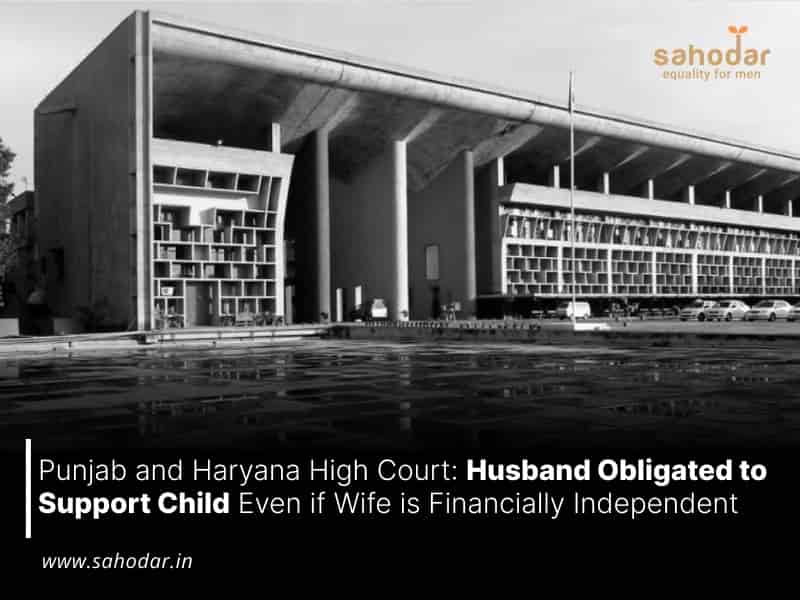Even when the mother is working, it does not mean the father will be absolved from taking responsibility for the child, the Court said.
The Punjab and Haryana High Court recently noted that a man does not automatically relinquish his duty to provide for his children simply because his wife is financially independent.
Justice Sumeet Goel made this remark while dismissing a husband’s argument that he should not be required to support his daughter, as she was in her mother’s custody, who could financially care for her.
The Court stated that the mother’s employment does not relieve the father of his obligations toward the child.
“Section 125 Cr. P.C. is a tool for social justice enacted to ensure that women and children are protected from a life of potential vagrancy and destitution. If the husband/father has sufficient means, he is obligated to maintain his wife and children, and cannot shirk away from moral and familial responsibilities,” the single-judge said.
The Court was considering a revision petition filed by a man challenging a family court’s decision that required him to pay interim maintenance of ₹7,000 to his minor daughter.
He contended that his income is only ₹22,000 and that he has six family members relying on him. Additionally, it was stated in Court that the child’s mother had adequate means to support her.
Nevertheless, the Court noted that the interim maintenance order is contingent on the final judgment and serves merely as a temporary measure before the proceedings are concluded.
“The family court observed that since the respondent (herein) is the minor daughter of the petitioner (herein) and has no independent source of income to support herself, it is the moral and legal duty of the respondent to support her. Being the father, the petitioner (herein) is obligated to maintain her to ensure a decent standard of living,” it added.
The family court took into account not just the man’s financial capacity but also the extensive responsibilities involved in raising a child, which should be equitably divided between both parents, the Court explained.
As a result, the Court concluded that the interim maintenance awarded by the family court does not warrant any interference.
“Accordingly, the instant petition is hereby dismissed,” it ordered.

